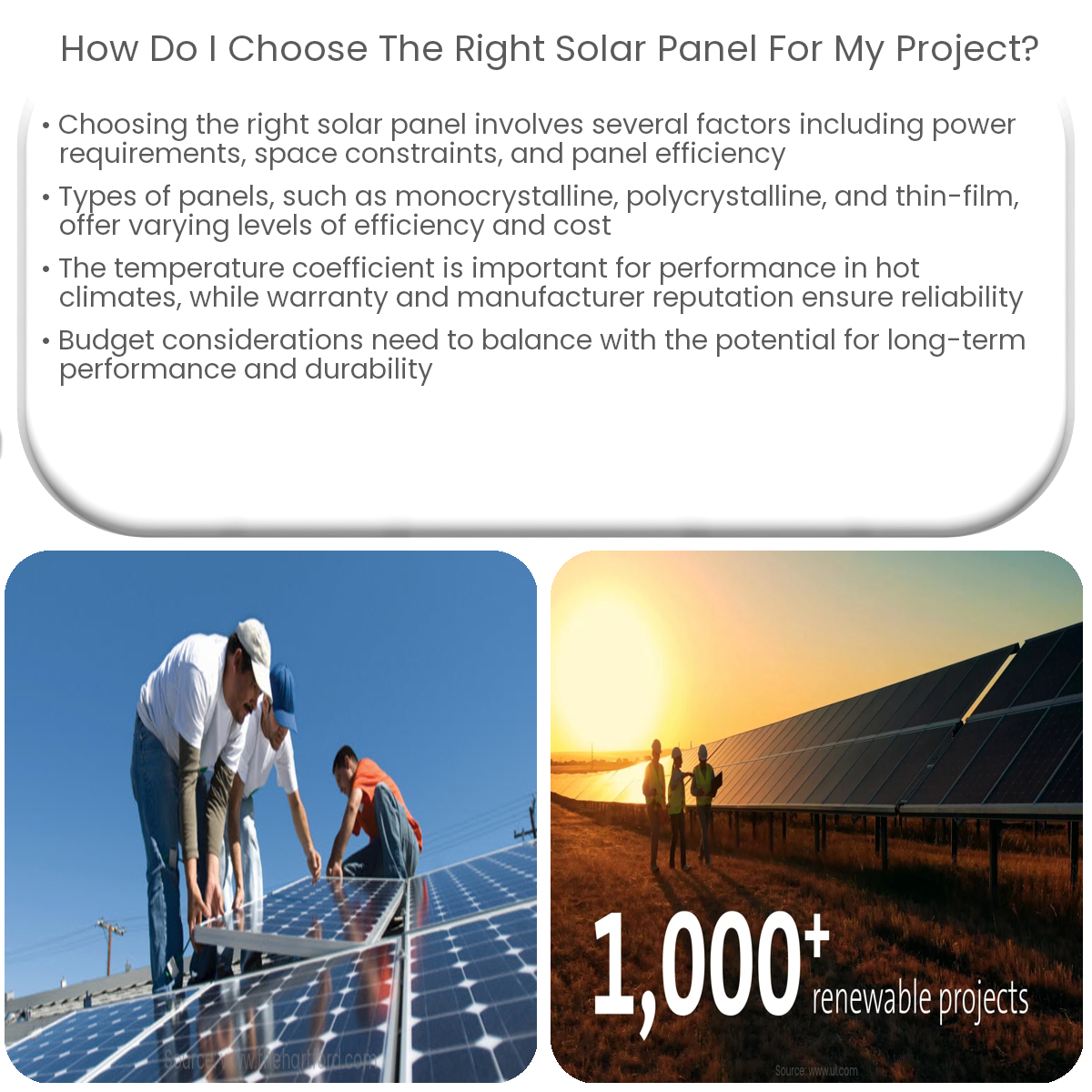Consider power requirements, space constraints, panel efficiency, panel type, temperature coefficient, warranty, and budget when choosing a solar panel.
Choosing the Right Solar Panel for Your Project
Selecting the appropriate solar panel for your project is essential for maximizing energy efficiency and ensuring long-term performance. Consider the following factors when making your decision:
1. Power Requirements
First, calculate your project’s energy needs by estimating the daily energy consumption (in watt-hours) of the devices in your system. This will help you determine the required solar panel output.
2. Space Constraints
Measure the available space for installing solar panels. The size of the panels will dictate how much energy they can generate. Smaller, high-efficiency panels may be more suitable for projects with limited space.
3. Efficiency
Solar panel efficiency refers to the percentage of sunlight that’s converted into electricity. Higher efficiency panels generate more power per square foot, but they may also be more expensive.
4. Type of Solar Panel
There are three main types of solar panels: monocrystalline, polycrystalline, and thin-film. Each type has its advantages and disadvantages:
- Monocrystalline: These panels have the highest efficiency, but they are also the most expensive. They perform well in low-light conditions.
- Polycrystalline: These panels are less expensive and less efficient than monocrystalline panels. They require more space to generate the same amount of power.
- Thin-film: These panels are the least efficient, but they are lightweight and flexible, making them suitable for certain applications.
5. Temperature Coefficient
Solar panels perform differently under varying temperatures. The temperature coefficient indicates the decrease in efficiency as the panel’s temperature increases. Choose a panel with a low temperature coefficient for better performance in hot climates.
6. Warranty and Manufacturer Reputation
Consider the warranty offered by the manufacturer and their reputation for quality and reliability. A longer warranty period can provide peace of mind and protect your investment.
7. Budget
Finally, consider your budget. Higher efficiency panels and reputable manufacturers may come at a higher price, but they could offer better long-term performance and durability.
By carefully evaluating these factors, you can choose the right solar panel for your project, ensuring optimal performance and a successful outcome.




